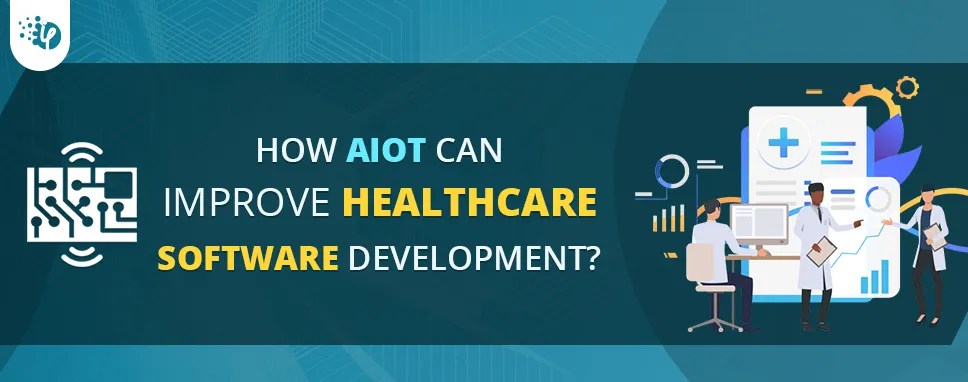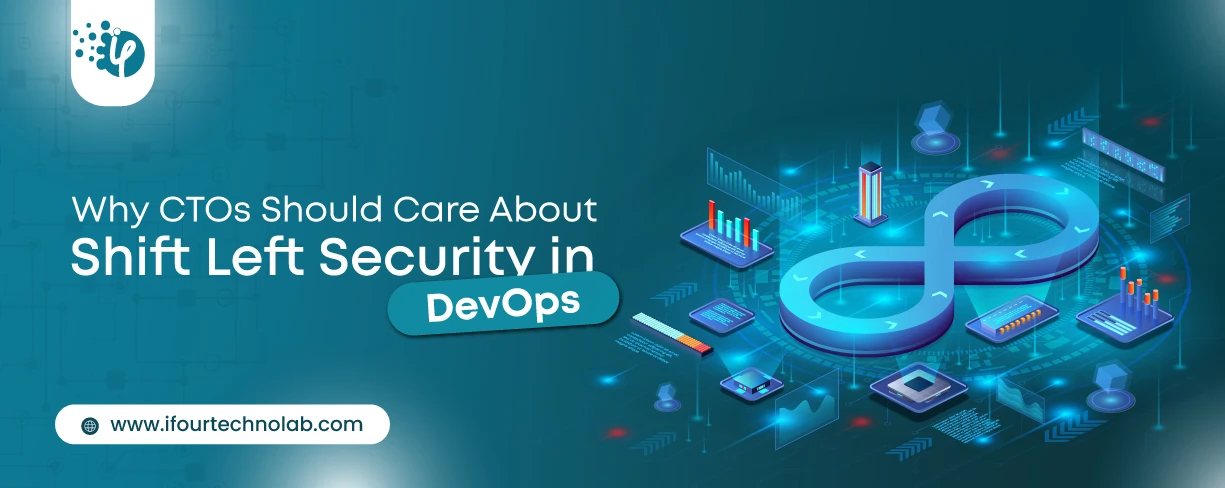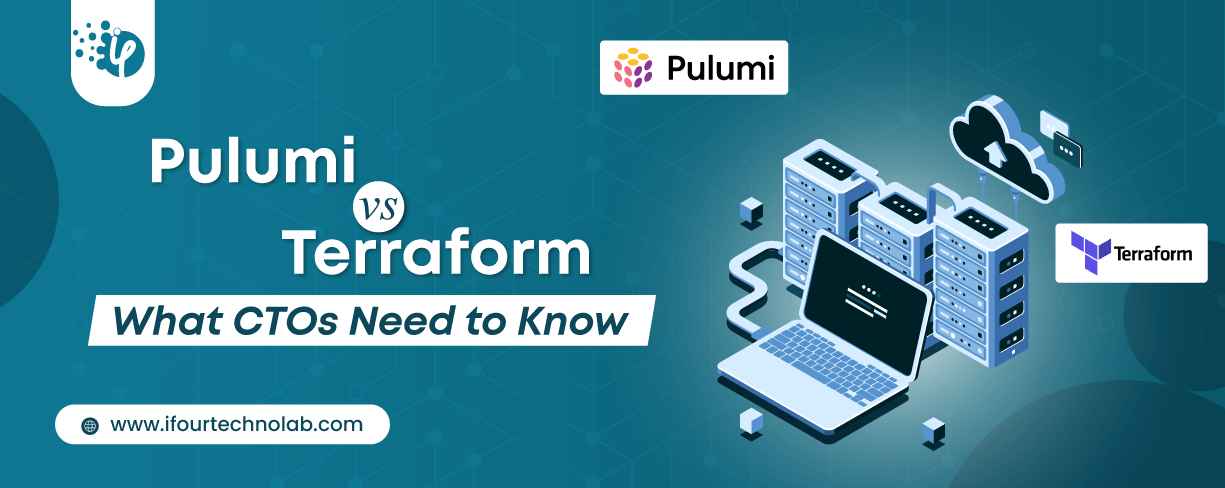How to Do Forecasting in Power BI (Steps & Accuracy Metrics)
Remember our last guide - Power BI forecasting? It revealed things that truly blocks accuracy, both structural and situational. Now it's time to take the next step. Knowing Power...
Listening is fun too.
Straighten your back and cherish with coffee - PLAY !

Artificial intelligence (AI) and the Internet of Things (IoT) are transforming the healthcare industry by enabling more efficient and accurate diagnoses, personalized treatment plans, and improved patient outcomes.
One way that AI is being used in healthcare is through the analysis of electronic medical records (EMRs) to discover patterns and predict potential health issues. For example, AI algorithms may scan a patient's EMRs to detect risk factors for specific diseases, such as diabetes or heart disease, and make suggestions for preventive or early intervention.
IoT devices, such as wearable fitness trackers and smart home devices, are also being used to collect and transmit data about a patient's health. This data can be used by healthcare providers to monitor a patient's condition, identify trends and patterns, and make treatment recommendations
Other AI uses in healthcare include the development of virtual assistants and chatbots to aid with appointment scheduling and answering patient inquiries, as well as the use of robots in surgeries and other medical operations.
So, incorporating AIoT into the healthcare process will greatly benefit the industry, from enhanced patient care to lower costs and increased efficiency.
AIoT (Artificial Intelligence of Things) refers to the integration of artificial intelligence (AI) and the Internet of Things (IoT). AIoT can help software developers improve custom software development in several ways:
Let's take a closer look at each of these.
1. Automation: AIoT systems can automate certain tasks, such as testing and debugging, which can save time and reduce the workload for developers.
2. Data analysis: AIoT systems can collect and analyze large amounts of data, providing developers with insights and trends that can help them make more informed decisions about how to improve their software.
3. Predictive maintenance: AIoT systems can predict when a device or system is likely to fail, allowing developers to proactively address potential issues before they occur.
4. Enhanced security: AIoT systems can improve security by detecting and preventing cyber-attacks and other security threats.
5. Improved communication: AIoT systems can facilitate better communication between developers, clients, and other stakeholders by providing real-time updates and alerts
To put it in broad terms, AIoT can help software developers improve the efficiency, effectiveness, and security of their software development processes.
Let's take a deeper look at what the top Healthcare experts have to say regarding AIoT applications.
AI and IoT have helped in diagnostics, as well as collecting and analyzing data. Robots have been a part of the healthcare industry for many years. Adding advances in AI to already existing technology will only continue to increase efficacy. What started as tech that assisted doctors in procedures can now complete those procedures completely on their own. The same can be said for custom software development. AI and IoT can help to deliver a better experience for patients in the healthcare system, providing more accurate diagnostics, better data analysis, and even predicting future conditions.
The healthcare industry is under constant pressure to improve patient outcomes while reducing costs. In response, many healthcare organizations are turning to artificial intelligence (AI) and the Internet of Things (IoT) to help them achieve these goals.
AI can be used in a number of ways to help healthcare organizations improve patient care. For example, AI can be used to analyze large data sets to identify trends and patterns that could lead to better treatment methods. AI can also be used to develop predictive models that can help clinicians forecast a patient's future health needs.
Meanwhile, the IoT can be used to create a more connected and efficient healthcare system. For example, IoT-enabled devices can be used to collect real-time data from patients that can then be analyzed by AI algorithms. This data can be used to improve the accuracy of diagnoses, monitor patients remotely, and even predict potentially dangerous health events before they occur.
By harnessing the power of AI and IoT, healthcare organizations can become more efficient and effective at providing care. As these technologies continue to evolve, it is likely that their impact on healthcare will only grow.
Through AIoT, the Healthcare industry has the potential to make enormous progress in terms of efficiency, affordability, and utility since it will expose a series of research options that could lead to an extensive cost reduction. The same goes for AIoT-focused instructions that guarantee that advancements produce more advantages than disadvantages. Even though the IoT concept opens the Healthcare system to several benefits, it still needs lots of monitoring.
IoT can play a vital role in the sectors of pharmacies, insurance practices, and emergency care. Interaction can be done with the help of Healthcare Software Development, and necessary processes can be carried out to deliver timely aid or even save a life. IoT devices can produce rational decisions like contacting the healthcare facility if a patient needs help in an emergency. Moreover, the IoT-equipped device would fetch the crucial message to the cloud, making it easy for doctors to work on it.
Healthcare software development has benefited most from AIoT in the realm of patient care and remote monitoring systems. Machine learning has seen great improvements in wearable monitoring technology since it can take real-time input and detect patterns leading to more informed data and outcomes.
Healthcare specialists explored the AI-based Internet of Things (IoT), smart devices, and other medical technologies (AIoT). In order to provide better care for those who live in remote and rural areas, linking the two areas makes sense. Due to new research choices and significant cost reductions, the healthcare sector has made enormous achievements in efficiency, affordability, and usefulness. It may be possible to monitor non-critical patients remotely from home, ideally at a hospital, reducing the need for hospital resources like beds and surgeons. This could be used to increase senior citizens' freedom to receive healthcare while living independently.
AIoT, or Artificial Intelligence of Things, refers to the integration of artificial intelligence (AI) and the Internet of Things (IoT). It involves the use of connected devices that are equipped with AI capabilities to perform various tasks and make decisions. In the context of healthcare software development, AIoT can assist in a number of ways:
Extensive data analysis: AIoT devices can collect and analyze large amounts of data from various sources, such as electronic health records, wearable devices, and sensors. This can help healthcare professionals make more informed decisions and improve patient care.
Predictive modeling: AIoT can be used to build predictive models that can identify patterns and trends in patient data. This can help healthcare professionals anticipate and prevent potential health issues before they occur.
Software Automation: Certain operations, such as appointment scheduling and prescription reminders, can be automated using AIoT. This can save healthcare personnel time and lessen the likelihood of mistakes.
Remote monitoring: AIoT devices can be used to monitor patients remotely, which can be especially useful for patients with chronic conditions or those who are at high risk for complications. This can help healthcare professionals identify problems earlier and take action to prevent them from becoming more serious.
Overall, AIoT has the potential to impeccably improve healthcare software development and make it simpler for healthcare professionals to provide high-quality care to their patients.
In conclusion, AIoT has the potential to significantly improve the healthcare industry by enabling healthcare professionals to make more informed decisions, automate certain tasks, and monitor patients remotely. By collecting and analyzing large amounts of data, AIoT can help healthcare professionals identify patterns and trends in patient data and anticipate potential health issues before they occur. Additionally, AIoT can be used to automate certain tasks, such as appointment scheduling and medication reminders, which can help healthcare professionals save time and reduce the risk of errors. Overall, the integration of AI and IoT in the healthcare industry has the potential to significantly improve patient care and outcomes.

Remember our last guide - Power BI forecasting? It revealed things that truly blocks accuracy, both structural and situational. Now it's time to take the next step. Knowing Power...

Security has always been a major concern. Your company spends millions on cybersecurity tools, and guess what? You’re still vulnerable. When you're working in the cloud, especially...

Automation isn’t just a trend anymore. It’s a must-have for any business relying on the Cloud. As the firm grows, cloud infrastructure gets more complex. So, choosing the right Infrastructure...